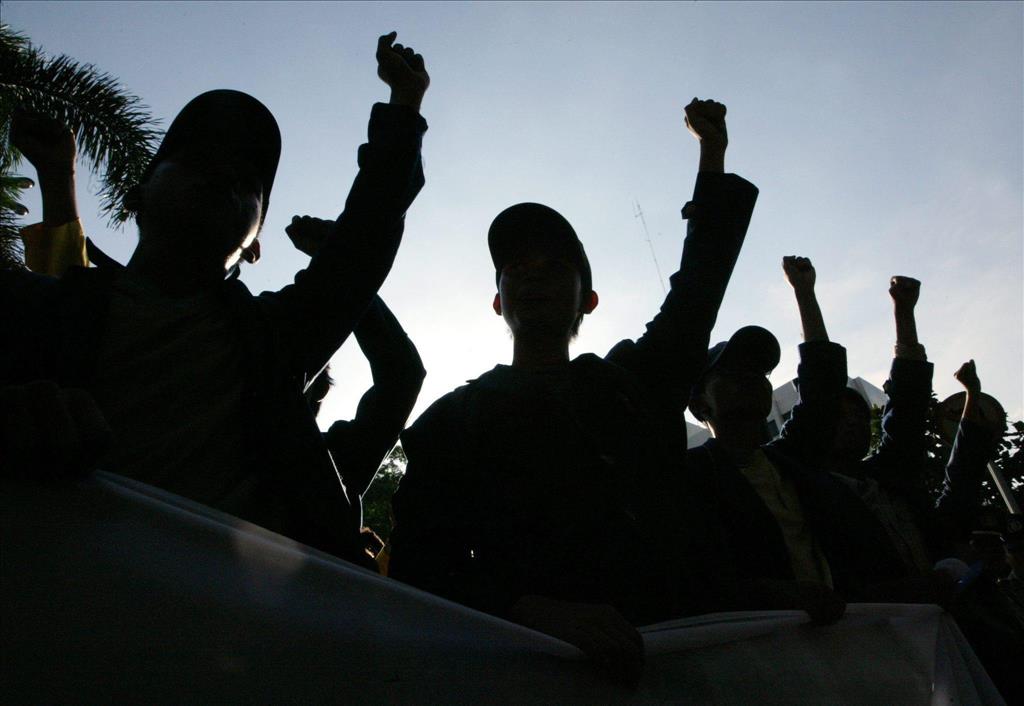
Understanding universities as political battlefields
In June, police anti-terror unit Detachment 88 raided Riau University in Pekanbaru, Riau. The police arrested three people and confiscated explosive materials.
Earlier this month, six universities signed an agreement with the National Counterterrorism Agency (BNPT) to counter the spread of radicalism in Indonesian campuses.
There are concerns that such crackdowns and agreements might threaten academic life and undermine students' freedom. Some people believe that campuses should be free from any political activities.
I suggest otherwise. Universities are never neutral grounds that can be isolated from political processes. History has shown how universities in Indonesia and other countries have become battlegrounds for different groups competing for political influence.
Student politics: past and presentStudies on global student politics have shown that universities are institutions where different political views compete to win influence. This kind of competition also exists in Indonesian universities.
In the lead up to the 1955 general election, student groups mirrored political competitions at the national level.
A study documents how political parties such as Indonesian Nationalist Party (PNI) and Indonesian Socialist Party (PSI) established the Indonesian National Student Movement and the Socialist Student Movement to extend their influence on Indonesian campuses.
Meanwhile, another political party, Masjumi, forged links with the Islamic Students Association (HMI). Its opposition partnered with the Concentration of Indonesian Student Movements (CGMI).
HMI and CGMI were locked in a battle to win influence after the failed coup attempt on September 30, 1965. In the end, HMI triumphed while CGMI and its patron, PKI, were banished from Indonesian politics.
Politics also intervene in universities in Malaysia. Under a New Economic Policy in 1969, Malaysia's Ministry of Education ruled every university to use Malay as the language of instruction within academic community.
The policy drew two opposing reactions from student associations. On one side was the University of Malaya's Malay Language Society, a student organisation exclusively for Malays. On another side was University of Malaya's Student Union, a student organisation that accommodated non-Malay students' interests.
This clash represented how the racial policy at the state level shaped the politics of Malaysian student movements.
Student movements in Indonesian and Malaysia also mirror political development outside campuses.
In Indonesia, a study links Tarbiyah religious movement in universities with the Prosperous Justice Party (PKS), an Islamic party that has been able to gain considerable votes in post-authoritarian Indonesia.
Meanwhile, in Malaysia, progressive student movements such as Malaysian Youth and and Students' Democratic Movement (DEMA) and Malaysian Muslim Students' Association (GAMIS) briefly won the political competition. The government responded back by replacing critical lecturers and screening student representative candidates.
These cases in Indonesia and Malaysia show how campuses are not quarantined from politics. Politicians often target students to win their support.
Knowledge productionIn addition to political students movements, it is important to note that the production of new knowledge in universities is a result of political processes. Facts, theories and methods are important, but without power and politics this knowledge will go nowhere.
The New Order regime under the dictatorship of Suharto tried to influence and shape social science research. The regime actively censored researchers that were critical of the government.
These researchers were banned from investigating sensitive topics. These topics include the wealth of former president Suharto and human rights violations in Aceh, East Timor (now Timor Leste) and Irian Jaya (now Papua). The New Order administration created a watch list for scientists to tame their criticism.
The US shared a similar experience with Indonesia. Between 1960 and 1966, the country's Defence Ministry increased its social research budget to US$160 million from US$10 million. The huge budget was allocated to support Project Camelot , a project to help win the Cold War. Scholars from reputable universities like Princeton University, Columbia University and Stanford University were recruited for the project.
But university academics do not always comply with the powers that aim to dominate knowledge production. They are also able to utilise their own influence and space to resist state domination.
One example of a mutiny by academics occurred in Australia. Based on interviews with 30 academics in 10 Australian universities, a study documents protests by academics against the introduction of private practices in public sector institutions. The protests came in the form of academics refusing to do the requested work. Instead, they overloaded feedback and evaluation systems, and refused to hold virtual classes and do administrative works.
Power contest at universitiesDynamics within universities are always political, and different interests compete for influence. This competition, in turn, has shaped intellectual activities through their attempts to bring professors and students into political debates.
So trying to counter radicalism in campuses by arguing that universities should not engage in politics is a false approach.
Freedom never comes without power struggle. By understanding that universities are political battlefields, those who despise radicalism should mobilise a coalition to fight radicalism. This would be the more strategic move to defend academic freedom.
- Terrorism Reform Indonesia Malaysia radicalism

Legal Disclaimer:
MENAFN provides the
information “as is” without warranty of any kind. We do not accept
any responsibility or liability for the accuracy, content, images,
videos, licenses, completeness, legality, or reliability of the information
contained in this article. If you have any complaints or copyright
issues related to this article, kindly contact the provider above.


















Comments
No comment